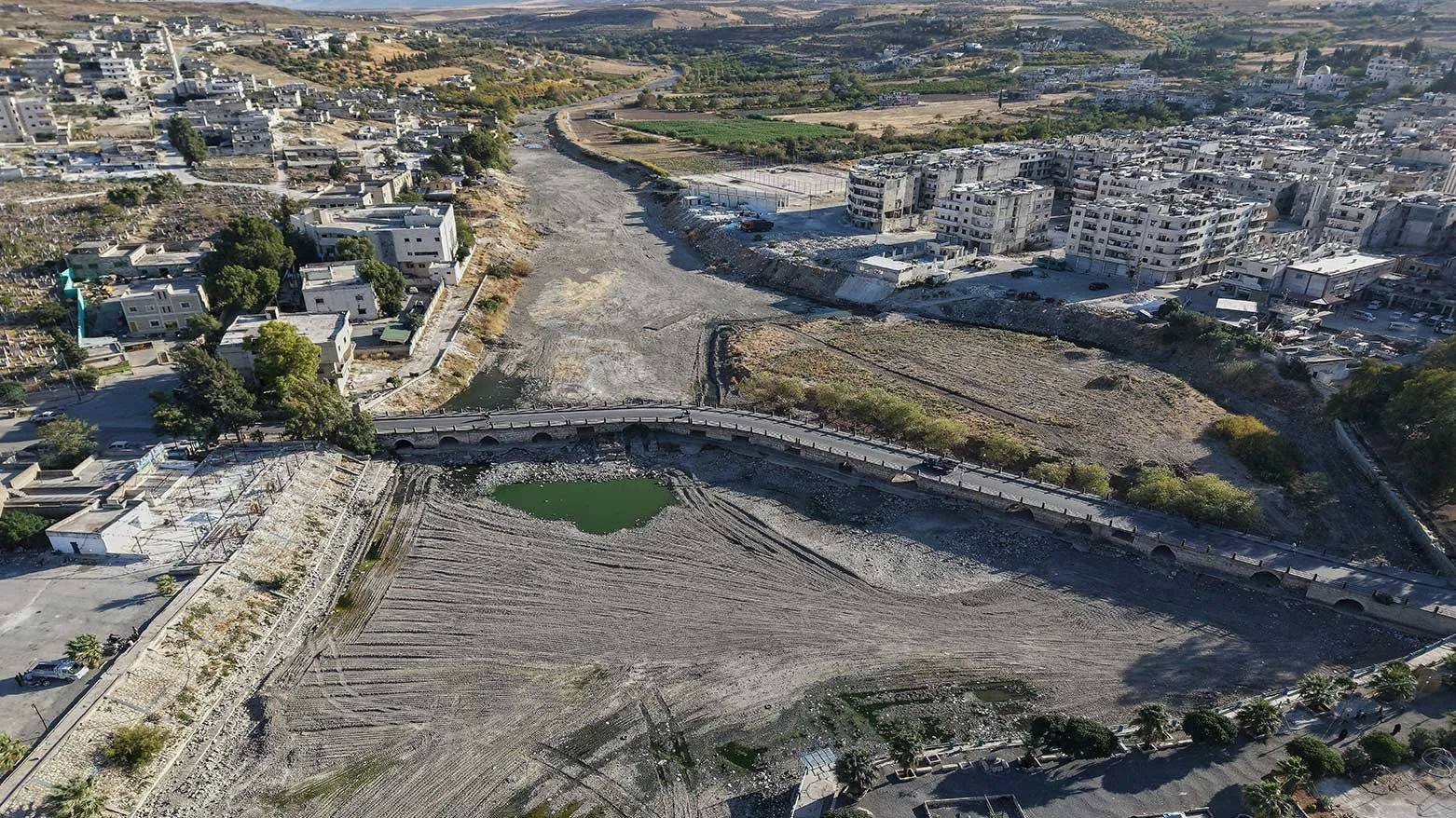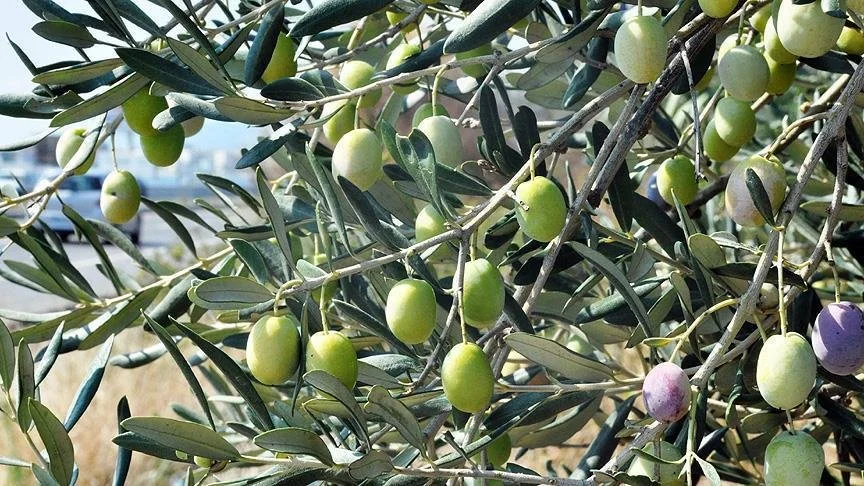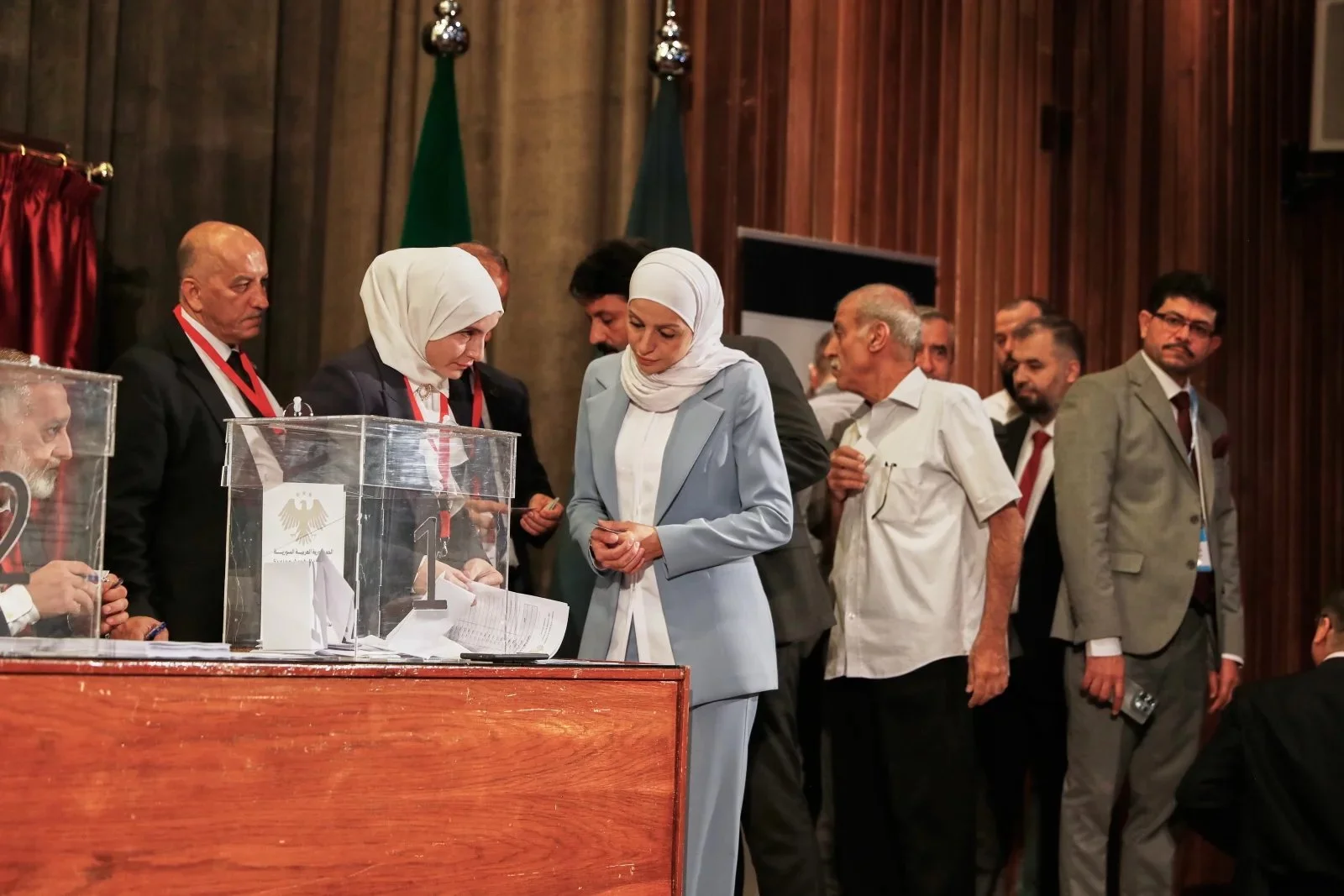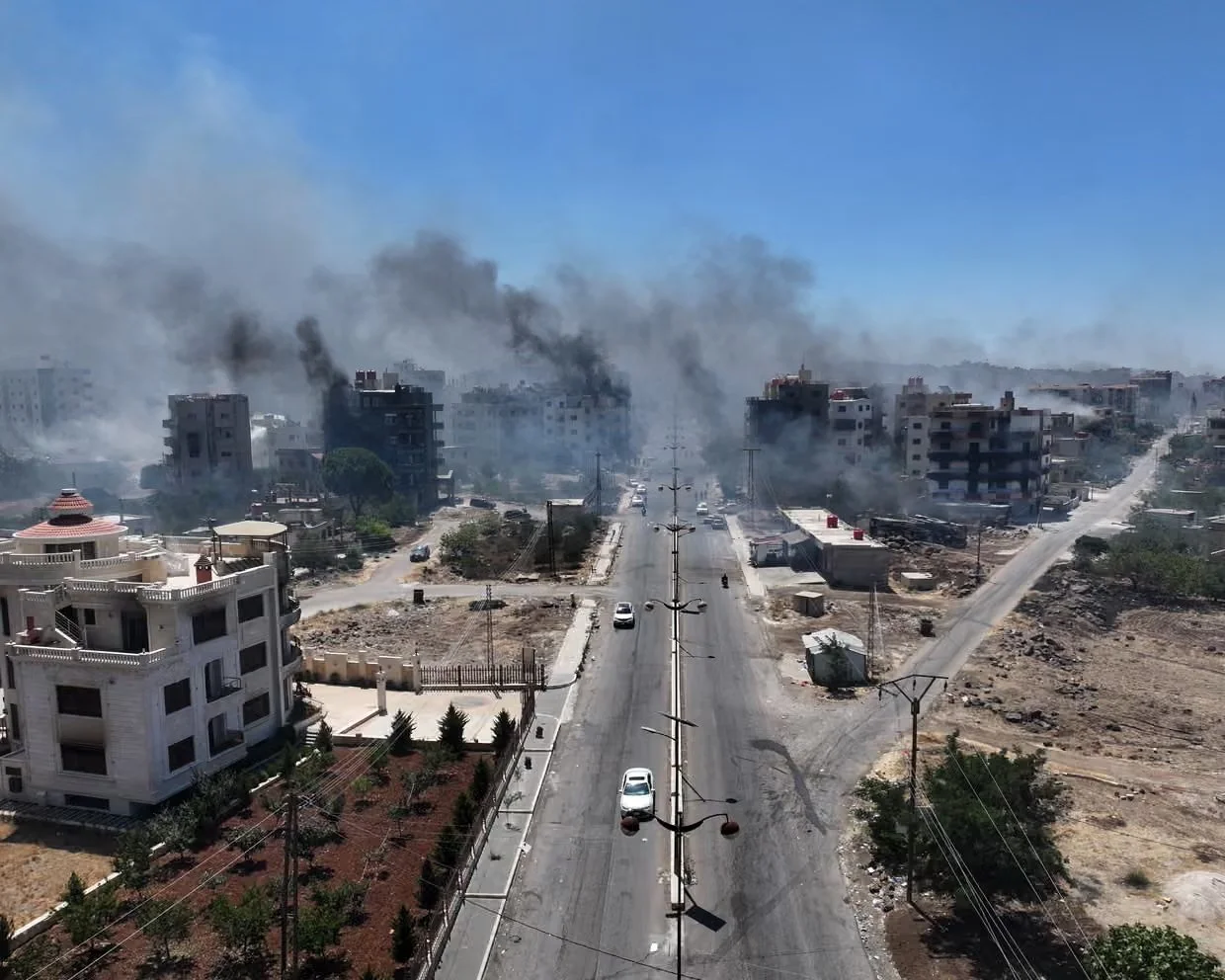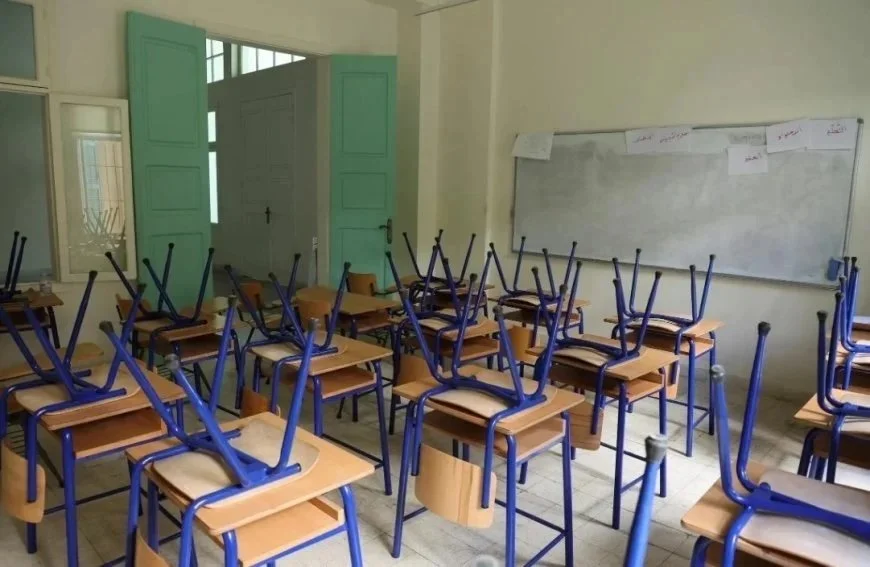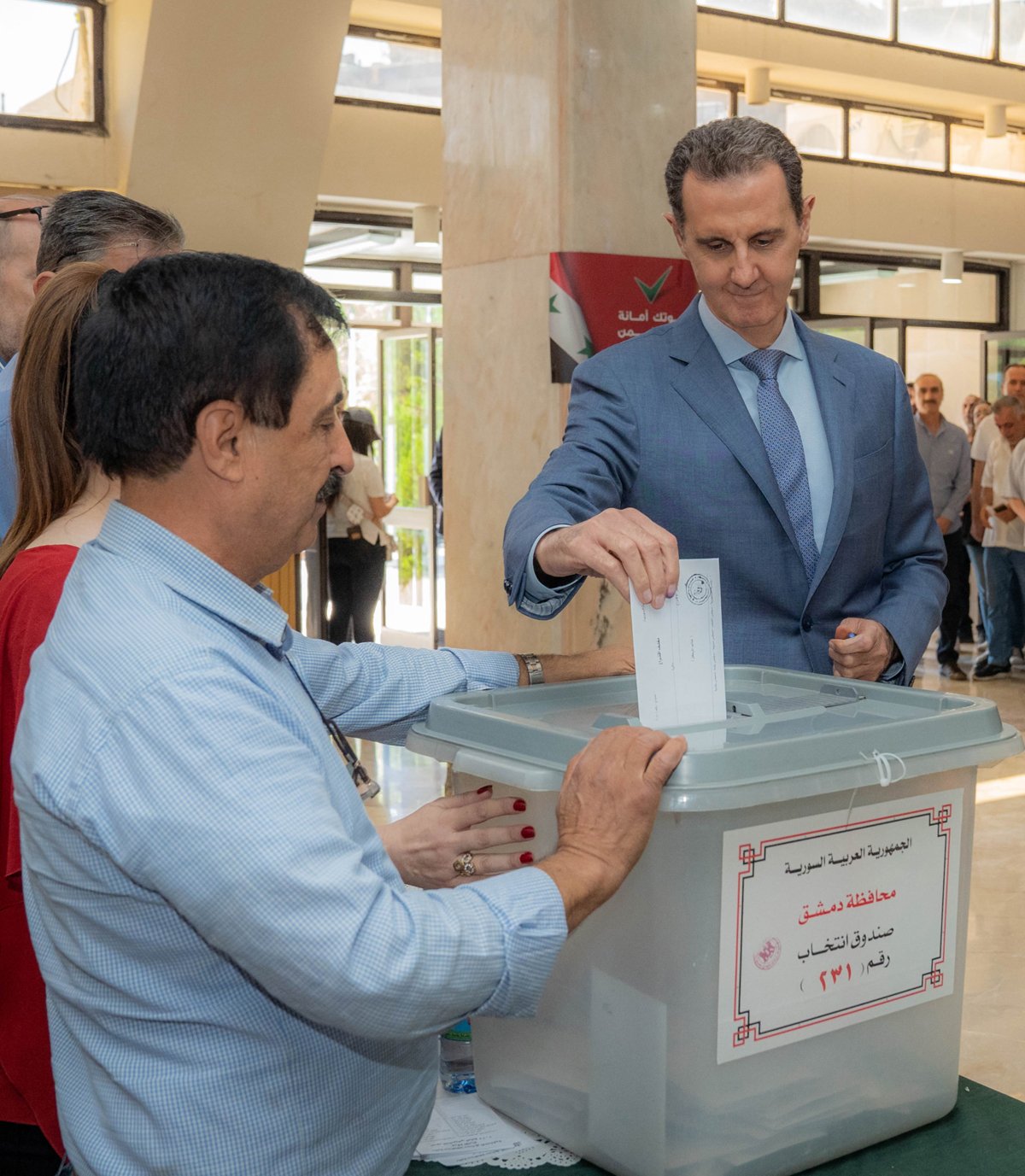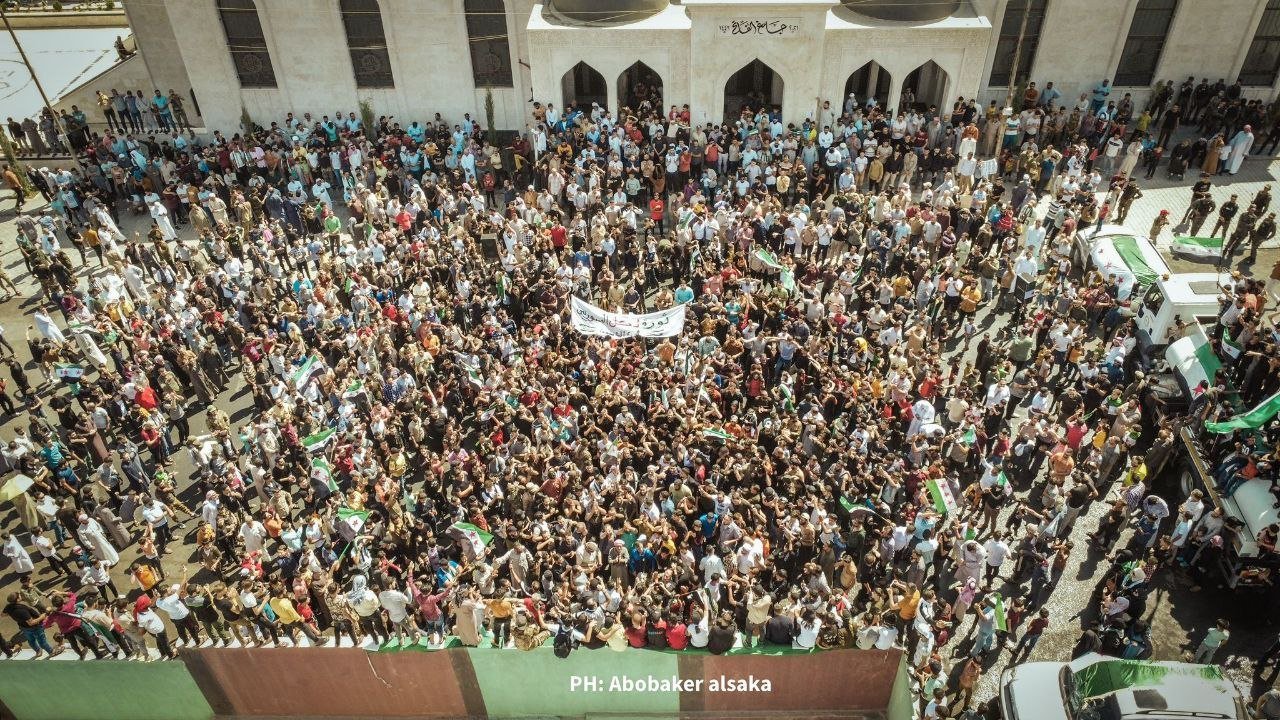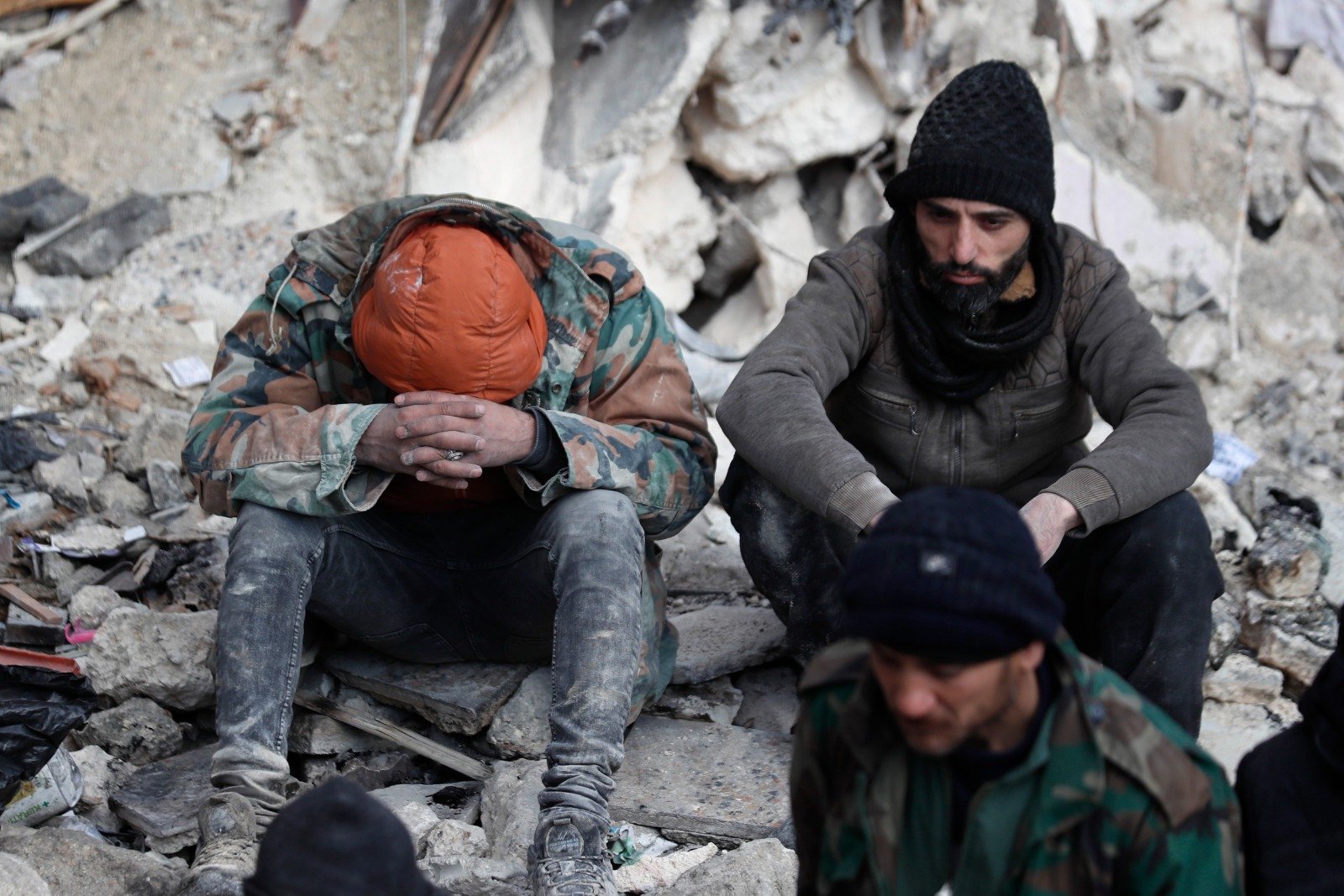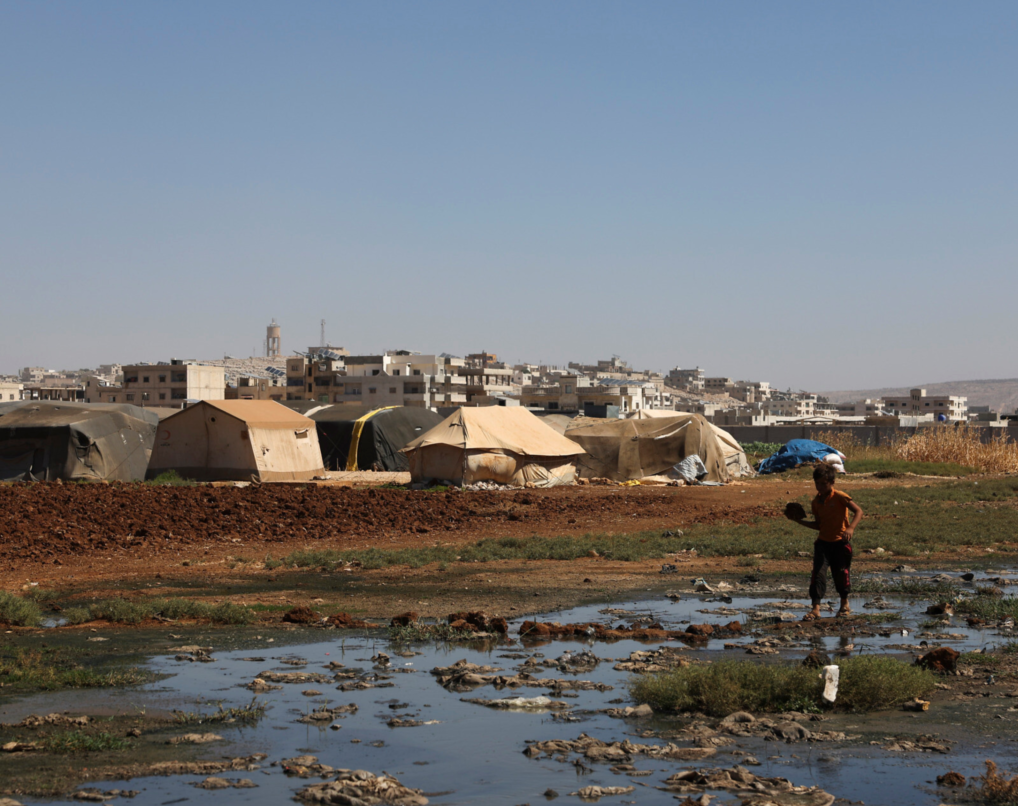
Periodicals
CA–SYR’s monthly periodical report offers thematic analysis of critical dynamics throughout Syria that may impact donor-funded activities. Disaggregated by zone of control, our monthly reports include a timeline of critical events, select economic indicators, and provides localized research and analysis with a whole-of-Syria reach.
An archive of all HAT and CA–SYR periodicals — including past weekly and monthly reports — is forthcoming.
November ‘25 monthly report
Syria’s diplomatic landscape shifted in November 2025 around President Ahmad al-Sharaa’s historic White House summit, which secured a 180-day suspension of key Caesar Act sanctions and Syria’s accession to the Global Coalition against ISIS, enabling a US-backed roadmap to integrate the SDF into the national army. In parallel, Damascus pursued “security-for-development” engagement with Beijing, winning pledges tied to addressing Uyghur militants in the northwest, while an Israeli strike on Bait Jan that killed 13 people underlined southern volatility despite renewed Russian deployments. Domestically, the launch of public transitional justice trials in Aleppo coincided with sectarian violence in Homs and unprecedented protests in Lattakia, where demands shifted from security guarantees to calls for a federalist system, exposing a widening trust gap between coastal communities and Damascus. Large drug seizures challenged claims that production had ceased, pointing to enduring criminal networks and questioning the narrative that counter-narcotics and anti-corruption drives are restoring sovereignty. The government advanced a managed stabilization strategy: lowering official fuel prices after Russian and Saudi oil arrivals and higher domestic refining, and responding to drought and a wheat deficit via private grain tenders and bread reforms that raised commercial prices and shrank loaf sizes. Agricultural contraction in the isolated northeast forced farmers off land, deepening regional inequality. In the energy sector, a deal with Qatar’s UCC Holding to build 5,000 MW of capacity improved power in cities like Homs and Hama, even as the Orontes River dried up and winterization funding cuts left IDPs exposed to harsh conditions.
October ‘25 monthly report
Syria’s October 2025 landscape was defined by cautious diplomatic shifts and deepening internal strain. Internationally, Ahmad al-Sharaa’s visit to Moscow signaled efforts to reaffirm the strategic partnership with Russia, secure economic support, and clarify earlier agreements signed under Assad. Syrian-Lebanese relations moved into a more pragmatic phase, with judicial cooperation on extraditions and shared economic pressures softening years of political friction. In Washington, the US Senate’s decision to revisit the Caesar Act highlighted growing bipartisan concern over sanctions’ humanitarian impact and long-term effectiveness. Domestically, governance pressures intensified. The education sector, strained by teacher shortages and decaying infrastructure, stood out as a key marker of institutional decline. In As-Sweida, dynamics after the agreed roadmap remained fragile, with persistent mistrust between local actors and Damascus, which relied on limited negotiation rather than structural reform. In the northwest, foreign fighter activity around Idleb sustained insecurity and underscored the limits of central state authority. In Aleppo’s Sheikh Maqsoud and Ashrafiyeh neighborhoods, clashes between government forces and the SDF exposed the fragility of local ceasefire arrangements despite renewed dialogue in the capital. Economically, tensions between Damascus and the Autonomous Administration persisted, as rival governance systems and restrictions on cross-line trade disrupted markets and pushed prices higher. Agricultural output weakened, with cotton and olive yields falling due to drought, high input costs, and degraded infrastructure, further eroding rural livelihoods and export potential. Service delivery remained uneven. While targeted maintenance and NGO projects improved drinking water access in some urban areas, rural communities continued to face systemic gaps, reinforcing reliance on private and informal solutions.
September ‘25 monthly report
The October 5 parliamentary elections dominated Syria’s political landscape, framed as democratic progress but effectively consolidating executive control and legitimizing the transitional government rather than expanding genuine participation. Meanwhile, fragile Syrian–Israeli negotiations over a U.S.-mediated border accord unfolded in London and Paris. Israel proposed demilitarized zones and airspace limits, while Damascus insisted on sovereignty under the 1974 disengagement framework. Talks collapsed after Israel demanded a “humanitarian corridor” to As-Sweida, exposing deep mistrust. The likely outcome remains a limited de-escalation rather than a comprehensive settlement. The “As-Sweida Roadmap,” jointly advanced by Syria, Jordan, and the U.S., sought to stabilize the governorate through aid delivery and mixed local councils but faced resistance from Druze leaders wary of Damascus’s control. Across Syria, governance remains fragmented: SDF-Damascus clashes intensified, and forced evictions in Damascus exposed institutional weakness. Regionally, trade with Türkiye and Jordan revived economic flows but fueled inflation and dependence, while refugee returns rose amid fragile conditions and an ongoing education crisis, leaving millions of children out of school.
August ‘25 monthly report
August marked an opening in Syrian–Israeli ties after discreet Paris talks, with al-Sharaa’s transitional government framing engagement as a path to de-isolation and reconstruction. Discussions centered on de-escalation in As-Sweida, border security, humanitarian access, and a partial revival of the 1974 disengagement deal, but Israeli raids, frontier maneuvering, and the first Israeli casualties in Syria since Assad’s fall threaten volatility. In the northeast, Damascus–SDF integration talks advanced amid political exclusion, tribal mobilization, and clashes. In As-Sweida, protests morphed into autonomy bids that face regime rejection and weak capacity. Markets showed deep fragmentation, liquidity and currency strains pushed households toward Hawala and risky crypto options, while anti-narcotics gains met a persistent Captagon economy. A heatwave cut crops 25–30 percent, drove wheat under one-third of need, and raised livestock mortality, lifting food prices. Returns surpassed 2.5 million, outpacing services. Steps including Azerbaijani gas and 700–900 MW gains aided cities but blackouts persist.
July ‘25 monthly report
July was marked by heightened regional maneuvering after Syria misinterpreted backchannel talks with Israel in Baku as tacit approval to reassert control over the south, triggering deployments to As-Sweida and prompting Israeli airstrikes framed by Damascus as sovereignty violations to rally domestic support. Fragile truces mediated by the US, Jordan, and Türkiye followed the most violent Druze–Bedouin clashes in years, which displaced thousands, damaged infrastructure, and deepened sectarian divides. In the northeast, SDF–Damascus reintegration talks advanced under international pressure but stalled over disarmament and governance disputes. Economic measures included reinstating dismissed public employees, launching a housing loan program, creating a Sovereign Fund, and planning a 2026 income tax overhaul, while Saudi Arabia and the UAE pledged $7.2 billion in infrastructure and trade projects, contingent on stability. Humanitarian needs remained acute, with northern Lattakia suffering its worst wildfires in years—destroying over 16,000 hectares, displacing thousands, and causing severe long-term environmental damage.
June ‘25 monthly report
In a significant diplomatic move, the US lifted key sanctions on Syria in late June, signaling a willingness to engage with Damascus. The executive order opened pathways for trade and banking, though the repeal of the Caesar Act is still required. This progress is fragile, with potential for future political reversals.
Simultaneously, Syria’s transitional government is focused on internal stability. It pursued transitional justice with high-profile arrests, though inconsistent justice remains a concern. A major judicial reckoning is underway, with judges being dismissed and defected civil servants reintegrated. The government also initiated the formation of a new People’s Assembly through a two-stage, indirect selection process, though many Syrians are wary of its opaque structure.
Economically, Syria rejoined the SWIFT banking network, increased salaries and pensions, and launched new investment initiatives. However, long-term fiscal risks and potential inequality from foreign-led development remain concerns. The government is also restoring infrastructure and services, including administering national exams, stabilizing bread prices, and improving energy distribution, though structural weaknesses persist.
May ‘25 monthly report
In May, the United States and European Union initiated a cautious relaxation of economic sanctions on Syria, signaling a shift in Western policy towards the new government, though these measures remain legally complex and reversible. Concurrently, the Kurdistan Workers' Party (PKK) announced its dissolution and end of armed struggle, urging a democratic path for Kurdish parties, which could significantly reshape northeast Syria's political landscape. Meanwhile, tensions escalated between Damascus and the Druze community following a fabricated recording, leading to clashes and displacement. President Ahmed al-Sharaa established new commissions for transitional justice and missing persons, aiming for human rights reform, while the General Security launched operations against criminal networks in Dar‘a, and the Interior Ministry underwent restructuring. Economically, northeast Syria faces one of its worst wheat harvests since 2018 due to drought, political tensions, and fractured procurement, raising severe food security concerns.
April ‘25 monthly report
Gulf governments are helping Syria re-engage with international financial institutions, while the UNDP pledged $1.3 billion for development in Syria. This, coupled with a change in US attitude to Damascus promotes new avenues for growth and rehabilitation. In Syria, social strains driven by transitional alignments and new rivalries are a primary driver of localized violence. This, coupled with the prevalence of armed civilians and vigilante justice, makes civil unrest a real threat. In northeast Syria, Arab elites established a council to challenge the “coercive domination” of the SDF, weakening the SDF’s negotiations with Damascus. To mitigate the effects of liquidity shortages, the Syrian government introduced digital payments for public sector employee salaries. Low rainfall, excessive consumption and unregulated borehole drilling threaten water supply in Damascus, causing the city’s water directorate to declare a state of emergency and introduce rationing.
March ‘25 monthly report
The focus of the Ninth Brussels Donors Conference remained on urgent humanitarian aid, rather than long-term reconstruction and recovery. It is likely some countries are hesitant to support the government, following violence on the Syrian coasts. President Ahmed al-Sharaa and Syrian Democratic Forces (SDF) commander Mazloum Abdi signed an agreement to merge the SDF with Damascus, however implementation is proving difficult. Industrial and manufacturing sectors in Aleppo and Idleb have been negatively affected by the recent influx of Turkish goods – factory closures and job losses have exacerbated high unemployment and poverty rates. The Syrian government is struggling to respond to the humanitarian crisis in coastal areas following the violence, facing resource shortages and access difficulties. Gas shortages in Idleb have disrupted businesses and living standards; the Syrian government has tried to resolve the issue by cracking down on illicit sales, which is unlikely to offer a sustainable solution.
February ‘25 monthly report
The Paris Conference on Syria took place on 13 February to discuss support for Syria’s political transition, signaling the first major interaction between the new government and the EU. Also, the Syrian National Dialogue Conference, an event promised by Ahmed al-Sharaa, was held in Damascus. An SDF commander reported that leaders in northeast Syria agreed to integrate with Damascus. Since then, all actors have remained silent on the issue, with negotiations apparently stagnated. Syria’s inflation rate has decreased, although this has not benefitted consumers struggling with liquidity shortages. Fuel smuggling into Syria is on the rise, potentially destabilising the fuel market and impacting essential services. Public sector reforms have resulted in widespread furloughs and cutbacks, affecting thousands of workers and causing public protest. The Dar‘a Directorate of Health held a successful faza’a, raising $1 million to rehabilitate the Dar‘a National Hospital. Low precipitation has forced herders in Deir-ez-Zor to buy costly fodder amid shrinking grazing lands. They have asked the AANES to help mitigate their financial losses and support the sector.
January ‘25 monthly report
The new Syrian government has achieved much toward reintegrating into the global order, however some states remain cautious, placing contingencies on lifting sanctions. Plans are ongoing to incorporate Syria’s multiple security actors under a restructured Ministry of Defense – most groups have expressed willingness, but progress is stalled by requests for at least some level of autonomy. In southern Syria, Israeli forces seized strategic territory, claiming to be securing its northern border. In Damascus, the new Ministry of Finance revoked restrictive economic policies to facilitate trade and boost economic activity, and pledged a 400% increase for public sector workers. However low reserves and liquidity shortages persist. Syrian IDPs now have the opportunity to return, free from persecution. However, for many living in camps, they cannot – their homes are unlivable, they do not have the right identification documents, and for some, are too poor to afford resettlement.
November ‘24 monthly report
Please note that a significant degree of this monthly report was researched, composed, and finalized prior to the overthrow of ousted president Bashar Al-Assad. CA–SYR is closely analyzing the very fluid situation and, thus, has not updated this Monthly Report to reflect the current status of Syria. However, for historical reference, CA–SYR felt it necessary to provide analysis on key dynamics in November.
The large-scale offensives in northern Syria which led to the overthrow of Assad and the fall of Damascus dominated events in late November. Earlier on, Israel upped its attacks on weapons facilities and inidividuals linked to Iran , to curb Iran’s path to Lebanon through Syria — the government at the time offered little resistance. Protestors in As-Sweida held fast to their anti-government sentiment, despite threats from Damascus. In the northeast, Turkish bombardment of infrastructure and oil refineries created fuel shortages, compounding economic and public health issues. Also, the ongoing fight against ISIS is yielding few successes, as the group’s evasive guerrilla tactics enable it to regroup in the Syrian desert. Flooding in the northwest devastated camps amid dwindling funding and opportunities to recover from disaster for residents.
October ‘24 monthly report
UNHCR launched an emergency appeal to support displaced Syrian and Lebanese nationals. Only a tiny proportion of this has been received, likely because of donor fatigue, multiple regional crises, and Damascus's incapacity to disengage from Iran. Damascus looks to be refusing to antagonize Israel or be drawn into regional hostilities with Hezbollah and Iranian-backed militias, despite increasing Israeli encroachment into Syria. In south and central Syria, the government published its anticipated 2025 budget, placing emphasis on investment spending to boost the economy. In the northeast, Turkey responded to an attack on Ankara by bombing multiple administrative and military facilities, oil plants and civilian service-related infrastructure. Clashes between armed factions in northwest Syria have forced other factions to choose to either align more strongly with Turkey, or to continue to oppose normalization. Meanwhile, Russian airstrikes hit Idleb and northern Aleppo, resulting in the displacement of thousands of civilians. The intensity of the strikes are expected to calm, as rumors of an HTS attack on government forces subside.
September ‘24 monthly report
War between Hezbollah and Israel in Lebanon has displaced more than 220,000 people and had a profound impact on the Syrian economy. The government risks being overburdened by the influx of people, amid its own economic struggles. In south and central Syria, a fuel crisis caused shortages in public transport, and increased electricity rationing. Oil shipments from Iran have slowed, amid threats of Israeli interception, while US sanctions have been extended to restrict Iranian vessels. In northeast Syria, the AANES rolled out a new curriculum, criticized for favoring Kurdish language and culture. In northwest Syria, the Syrian Interim Government (SIG) and UNICEF partnered to repair the Ain al Bayada water pumping station located in government-held areas to end the recurring water crisis in Al Bab city. Also, the SIG announced the dissolution of the Northern Falcons, a faction of the Syrian National Army (SNA) critical of Turkish—Syrian normalization in northern Aleppo. The issue has highlighted a clear division between the armed opposition who support and those who oppose normalization.
August ‘24 monthly report
In south and central Syria, the government’s push toward a cashless economy by asking farmers and workers to open bank accounts is premature – there is neither technical literacy nor the necessary infrastructure to handle the change. In As-Sweida, government forces are forcefully trying to stop the protest movement, ongoing for a year now. However, the governorate’s local militias are pushing back. In northeast Syria, taxi drivers went on strike after the AANES more than halved their subsidized diesel allocations amid a 92% decrease in budget for subsidies in 2024. In Deir-ez-Zor, Tribal Forces clashed with the SDF, damaging water stations, agricultural fields and displacing locals. In northwest Syria, opposition figures, activists, and Dignity Sit-In organizers founded the Supreme Council for the Revolutionary Command (SCRC) to protest Syrian-Turkish normalization. In Idleb, the SSG suspended the Paralympic Games after religious figures criticized the event, saying it violated religious rules, had pagan imagery and imitated the West.
July ‘24 monthly report
A request by eight EU member states for the EU to re-engage with Syria over a lasting political resolution is unlikely to be granted because of conflicting priorities among all EU member states and Syria's human rights abuses. In south and central Syria, the government is transitioning its 4.1 million subsidy recipients from an in-kind to a cash-based system, which may devalue subsidies due to inflation. July parliamentary elections saw low turnout and boycotts, with all elected candidates linked to the Ba’ath Party, signaling no real change. In northeast Syria, the Autonomous Administration (AANES) introduced a law to regulate the electricity sector, addressing the impacts of Turkish bombardment and encouraging private investment. The Administration also issued an amnesty law and hinted at reviving intra–Kurdish dialogue, possibly to show combined strength amid Syria-Turkey normalization concerns. In northwest Syria, protests in Bennsh led to an attack on a Hay’at Tahrir Al-Sham police station, sparking a violent response. In a separate development, the Syrian government increasingly used drone attacks against opposition forces to maintain pressure and displace civilians near frontlines.
June ‘24 monthly report
Indications of a Syria-Turkey normalization process have resumed, with Syria’s president Bashar al-Assad showing openness to restoring relations, and Turkey’s Recep Tayyip Erdoğan considering a meeting with Assad. However, full rapprochement is complicated by regional tensions and US influence. In south and central Syria, evidence of an ISIS hub in As-Sanamayn in Dar‘a can be seen in graffiti and videos of ISIS fighters, while in unrelated news, the Syrian Ministry of Defense plans to demobilize thousands of reservists. Also, Lattakia residents face severe water shortages. In northeast Syria, the Autonomous Administration (AANES) disclosed a budget deficit projected to reach $389 million by 2024; the AANES has also postponed its municipal elections. In northwest Syria, the Al-Bab local council reopened the Abu Al-Zendin crossing, after nearly four years, amid clashes between protestors and Turkish forces. The region also faces a health crisis with the potential closure of over 150 health facilities by June due to funding cuts.
May ‘24 monthly report
In May, discontent among Arab League members with President Bashar al-Assad was evident. The League postponed a Liaison Committee meeting with the Syrian government, denied Assad speaking time at the 33rd Summit in Bahrain, and withheld honors typically given to leaders. A fuel crisis struck south and central Syria after Iran stopped delivering oil for two months, leading to increased rationing of electricity and fuel, public transport disruptions, and higher market prices. The ruling Arab Ba’ath Party conducted direct leadership elections for the first time, concluding in May. The reelection of many senior members suggests minimal change. In northeast Syria, farmers protested against the purchase price for wheat set by the Autonomous Administration of North and East Syria (AANES), claiming it barely covered production costs. AANES officials cited budget constraints, the Turkish bombardment, and falling global wheat prices as reasons for the low price. Controversially, the AANES also increased fuel and bread prices. In northwest Syria, students protested the appointment of Syrian government university graduates to Syrian Salvation Government (SSG) positions. Following a meeting with the SSG Prime Minister, a committee was formed to address the demands. There also remain ongoing protests against Hay’at Tahrir al-Sham (HTS) and leader Abu Mohammad al-Jolani.
April ‘24 monthly report
In south and central Syria, the government introduced an electronic billing system to combat tax evasion, increase transparency, and automate tax calculation in various commercial sectors. Meanwhile, industrialists criticized the Ministry of Electricity's decision to raise electricity prices. In northeast Syria, the AANES confirmed the arrival of Syrian deportees from Iraq, aligning with Iraq's efforts to regulate labor migration. Christian-owned properties in Ar-Raqqa and Al-Thawrah were transferred to a protection directorate. In northwest Syria, protests against HTS and its leader continue to spread, despite failed reforms. HTS engages in dialogue with protestors to avoid security force escalation.
March ‘24 monthly report
The UN Special Envoy for Syria, Geir Pedersen, is making arrangements for the ninth session of the Syrian Constitutional Committee, due to convene in Geneva in April. An ongoing disagreement over the location, however, has led some parties to back out of the session. Protests erupted across Syrian Salvation Government (SSG)-held areas against a detainee tortured to death while in Hay‘at Tahrir al-Sham (HTS) custody. Protestors called for the removal of Abu Mohammad al-Jolani and the dissolution of the General Security Service. Food prices in south and central Syria rose significantly during Ramadan, making it difficult for households to buy essentials. Economic experts have noted higher-than-average price hikes in Syria compared to neighboring countries. In As-Sweida, a protestor was killed during an altercation with security forces near the April 7 Reconciliation Center. In northeast Syria, Avin Sweid was elected as co-chair of the Executive Council of the Autonomous Administration (AANES). In other developments, increased rainfall has benefitted cattle herders through reducing the need to buy costly barley and improving access to water.
February ‘24 monthly report
The US House of Representatives passed the anti-normalization act on 14 February, to be voted on by the Senate. The legislation is to prohibit “any official action to recognize or normalize relations with the Syrian government under President Bashar al-Assad”. In south and central Syria, the Syrian government increased the price of subsidized goods and basic services. Former opposition groups in Dar‘a have seemingly united to fight against both the Syrian government and alleged ISIS affiliates, most notably in Yadudeh and Mhajeh. In northeast Syria, the Syrian Democratic Forces seized hundreds of thousands of Captagon pills in Al-Thawrah (Tabqa) and Ar-Raqqa. Meanwhile, alleged ISIS attacks in Al-Hasakeh and Quamishli cities signaled the ability of the group to inspire lone-wolf attacks in previously secure areas. In northwest Syria, tensions between the Mawali tribe and the Syrian National Army (SNA) rose after a tribal member detained by an unidentified SNA faction was tortured and killed. In response, the Mawali tribe called for its members to defect from the Amshat Division, an armed group. Fearing a possible military escalation , 400 families fled the area.
January ‘24 monthly report
During the 21st Astana Process in Kazakhstan’s capital, Russia, Turkey, and Iran agreed to de-escalation efforts in northwest Syria without any further agreement on steps to resolve the Syrian conflict. The US attacked Iran-backed militias after three US personnel were killed at its ‘Tower 22’ base in Jordan. In south and central Syria, local armed groups in As-Sweida offered to help Jordan combat cross-border narcotics smuggling. To the economy, President Bashar al-Assad issued decrees prohibiting residents from using foreign currency or pricing goods and services in any currency other than the Syrian pound. In northeast Syria, the Autonomous Administration ratified a new social contract, while the Syrian Democratic Council elected new leadership — these efforts show the possibility of northeast governance actors seeking to mend ties locally and internationally. In the northwest, the Syrian government granted a six-month extension to the UN to use the Bab Al-Hawa crossing for cross-border aid deliveries, while major water pumping projects to Idleb City were suspended by funding cuts, leading to supply shortages. An unapproved draft law on Public Morality from the Syrian Salvation Government surfaced in media outlets, causing concerns over personal freedoms.


